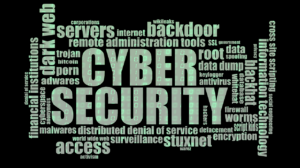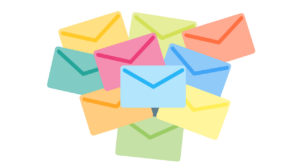Most of us recognize that we are stronger together as we navigate these unprecedented times. However, there are always those members of society who will take advantage of a bad situation for their own gain.
Sadly, since the advent of government assistance programs such as the Paycheck Protection Program (PPP), there has been a proliferation of scams designed to take advantage of the confusion and anxiety surrounding access to these assistance programs. The goal of these scams is to steal personal and financial information from business which can be used for identity theft or to divert funds.
The PPP offers forgivable, low-interest loans to small businesses so they can continue to pay employees during the pandemic. The program has been allocated $659 billion by congress, but as of June 30, approximately one fifth of the funds were still available, prompting an extension to the programs.
While essential to survival during the pandemic, government assistance programs such as PPP provide easy marks for scammers who can impersonate government agencies, or lending institutions by using email blasts, robocalls and forgeries of government websites to connect with targets. Don’t worry though, there are a number of easy ways to avoid a scam.
Types of Scams
Con artists typically pretend to represent the Small Business Association (SBA), the government agency in charge of PPP, or a financial institution administering loans. They may also claim to represent third-party agencies that can facilitate or expedite your loan for a fee.
These opportunists will gain your confidence with this false identity and leverage this to acquire personal information such as your social security number, financial information such as your bank account number or request payment up front for non-existent services.
While the PPP will expire soon, the scams are likely to continue, with scammers claiming that new money has been allocated or that funding has been extended.
Small business owners should be suspicious of unsolicited calls or emails, especially if those calls are seeking payment or personal and financial information upfront.
There are three main categories of prevalent scams taking advantage of COVID relief funds: Grant Scams, Loan Scams and Phishing Scams.
Grant Scams
This type of scammer will make unsolicited calls to small business owners, claiming to be a representative of the Small Business Association. They will offer assistance with applying for 7a or Disaster loans and grants as a ruse to collect personal and financial information such as social security numbers and bank account numbers. In reality, the SBA never calls businesses to offer assistance with grant applications. This type of call is always a scam.
Loan Scams
This type of scammer also makes unsolicited calls to small businesses under the guise of an SBA agent. The con artist offers fast-tracking or guaranteed loan approval, for an upfront fee. In reality, there are no legitimate programs that can expedite or guarantee approval for your loan and the SBA never calls businesses to offer loans.
Sometimes this type of phone scam will rely on the assumption that you have already applied for PPP through the proper channels and will call claiming to “verify” your loan information. Scammers claiming to be from the SBA or a lending institution may also distribute fake PPP applications that are a convincing forgery of the real thing, or collect fraudulent application fees. There is no fee to apply for PPP so any request for an application fee is assuredly a scam.
Phishing Scams
This type of scammer sends email blasts branded with the SBA logo and including bogus links to government assistance programs. When clicked, the links take users to forms that collect financial info or install malware on devices. The phony websites that these links take users too are often very sophisticated replicas of the branding and style of government websites.
Like phone scammers, phishing scammers are sneaky and may take advantage of the fact that you have already applied for loans through the proper channels. For example, one scam recently making the rounds sent an email blast featuring the SBA logo, which advised readers that the link would take them to important documents and forms they needed to sign and complete to access their loans. The forms collected sensitive business information and submitted them to a phony government portal. In fact, it is lending institutions that are responsible for this type of paperwork, not the SBA. Be suspicious of callers claiming to represent the SBA, but who are following up on matters that are in the domain of lending institutions.
8 Ways to Avoid Scams
- Beware of unsolicited emails. Do not click on links unless you are 100% certain where the email is from. Mysterious links could be installing malware on your device or taking you to phony government websites that collect your personal and financial information.
- Call the SBA for information on how PPP works and which agencies and institutions are responsible for administering the program. In the phishing scam noted above, one giveaway is that the email claimed to be from the SBA while seeking information that would be collected by lending institutions.
- Be suspicious of anyone asking for money in exchange for information about navigating assistance programs. The SBA offers information regarding accessing assistance programs free of charge through its Answer Desk at 800-827-5722 or [email protected]. Free guidance on pandemic relief options for small business can also be obtained from The Treasury Department.
- Be suspicious of any calls offering you government loans. Government agencies do not call you to offer assistance.
- Never provide your personal or financial information (such as social security number, bank account number) to unsolicited callers. Government agencies do not make phone calls to collect this information.
- Scammers are clever at making their materials imitate government branding and websites. Compare logos and other branding in emails to the branding on official government websites. The forgeries may be convincing, but not perfect.
- Check email and website addresses carefully to make sure they include a legitimate government domain. For example, all SBA addresses include the domain sba.gov.
- Confirm that prospective lenders are SBA-authorized before applying for a loan. You can check whether a lender is authorized by using their search tool to find eligible lenders.





